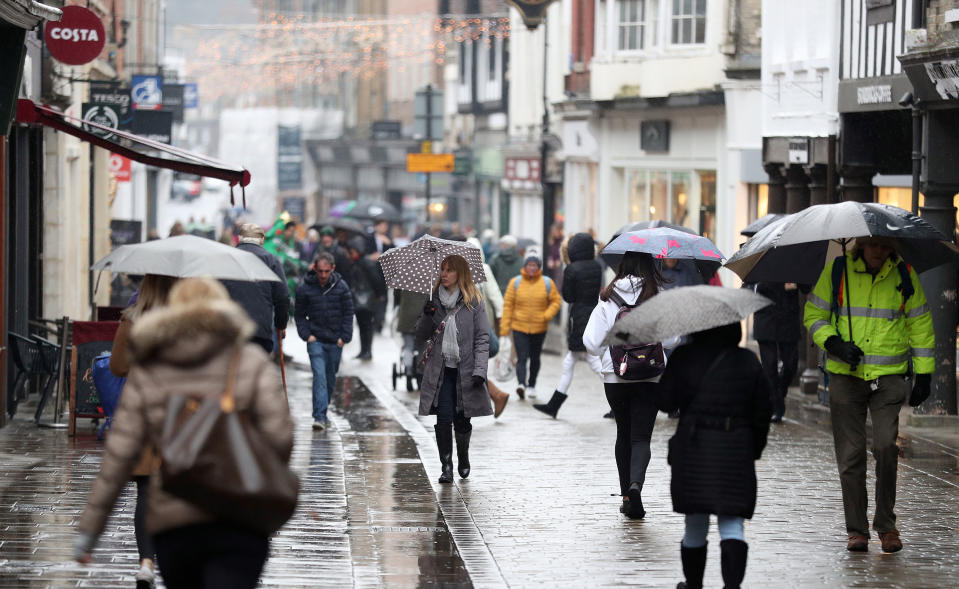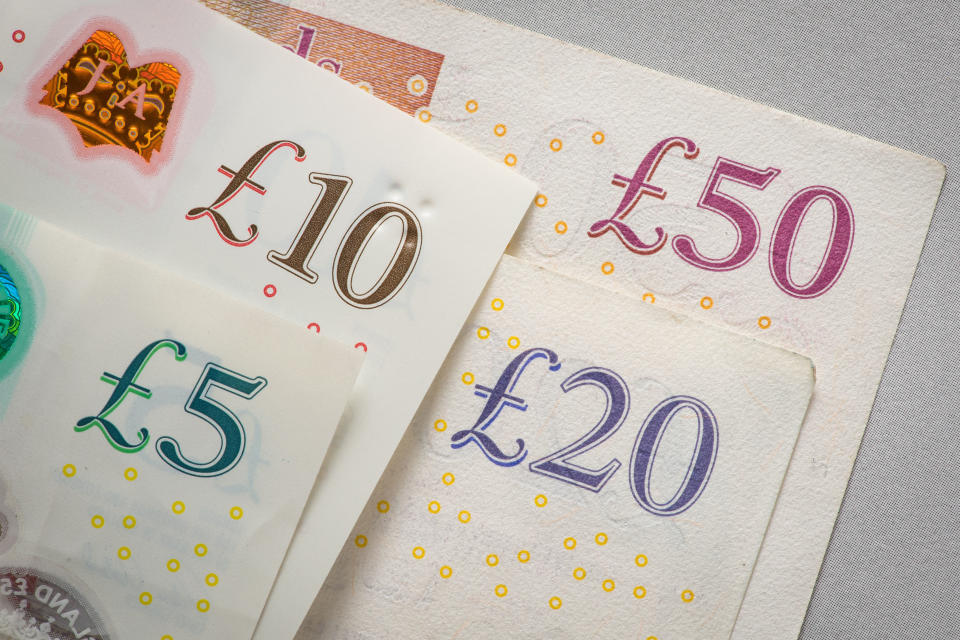May's net-zero emission plan could cost £50bn a year — but might just work

A climate change expert says Theresa May’s plans to end the UK’s contributions to climate change by 2050 could cost £50bn a year — but might just work.
The UK prime minister unveiled plans on Wednesday to make Britain the first country to set a target for net zero emissions in law.
But the announcement was short on detail, leaving future governments to make the harder decisions about how Britain will actually meet the target.
Yahoo Finance UK asked several leading experts if the government’s plan was realistic, and what needs to happen to hit the target.
Is May’s emissions target realistic?
Bob Ward, an expert on climate policy at the London School of Economics, said the plans were definitely achievable.
“2050 is the right balance between the urgency of the problem and the practical challenges of reaching the target,” said Ward, policy director of the LSE’s Grantham Research Institute on Climate Change and the Environment.
Tom Hill, an environmental economist at the Institute for Public Policy Research (IPPR), said it was “absolutely realistic, necessary and practical.”
He said the government already has a pre-written blueprint for action, with a landmark report released by its Committee on Climate Change in May.
What are the easy ways to reduce emissions?
LSE expert Ward said one of the simplest areas to cut emissions to zero would be electricity generation, through renewable energy and nuclear power.
“We’ve managed to massively reduce the use of coal in generating electricity, particularly through offshore wind that many years ago seemed too expensive,” he said.
He believes transport could also reach zero-emissions through electric cars and hydrogen vehicles, with availability and cost improving rapidly. “Electric vehicles were entirely unheard of not long ago,” he said.
Short-haul flights could even be run on electric batteries in future, according to Ward.
What will be hardest to change to reach net zero?
Hill of the IPPR thinktank said: “Inevitably it’s going to be hard to achieve changes in the way we do things, like the way we eat.”
Ward explained that methane produced by cows is far worse than carbon dioxide, so Britain will “undoubtedly” have to reduce the amount of meat consumed.
READ MORE: May looks for a legacy with ambitious climate plan
A drastic fall in meat eating could take a big shift in attitudes, short of outlawing or limiting consumption in other ways.
Replacing gas central heating in more than 20m UK homes is another vital step but would require a huge amount of work, Ward added.
He said electric batteries were unlikely to be able to power long-haul flights, one of the worst sources of emissions.
Are consumers and firms prepared to change?

Hugh Jones, managing director of business services at the Carbon Trust, said the business world increasingly recognised the social, economic and reputational benefits of action.
“Commitment from both businesses and investors will be critical to make it happen, but it is still possible,” he said.
Ward said he was also optimistic, saying people were “willing to act” particularly after last year’s hot summer and several serious floods in the UK in recent years.
“There’s a radical change in the way the public, politicians and businesses understand the threat of climate change,” he said.
Hill agreed “a tide has turned,” but said firms ultimately had no choice. “Businesses are going to have to act. The climate crisis isn’t a decision – it’s going to happen. The question is more whether the UK firms come early or late to the party.”
How much would the government’s target cost?
Ward told Yahoo Finance UK it could cost around £50bn a year up to 2050 to achieve the government’s goals, which some critics say are not even ambitious enough.
He said that calculation was based on the Committee on Climate Change’s estimate of 1-2% of GDP a year. “It’s a large sum, but that’s public and private investment,” he said.
The Treasury is currently leading a review of the costs of decarbonisation, including the thorny issue of who should foot the bill.

Could the plan be good for business and the public?
Hill said there were “business opportunities” both at home and abroad, from spearheading electric vehicle innovation to the mass programme of refurbishing people’s homes to be fuel-efficient.
He said: “There will be a swathe of hi-tech and low-tech work that comes from this.”
Jones of the Carbon Trust said an “ambitious and consistent” framework from government would help firms innovate with low-carbon technology and fundamentally change their business models.
The committee’s report said renewable power and electric cars could benefit the public too as they could become cheaper than current fossil fuel-based vehicles and energy.
Ward said the plans could also help prevent the 30,000 estimated deaths a year caused by air pollution.

 Yahoo Finance
Yahoo Finance 